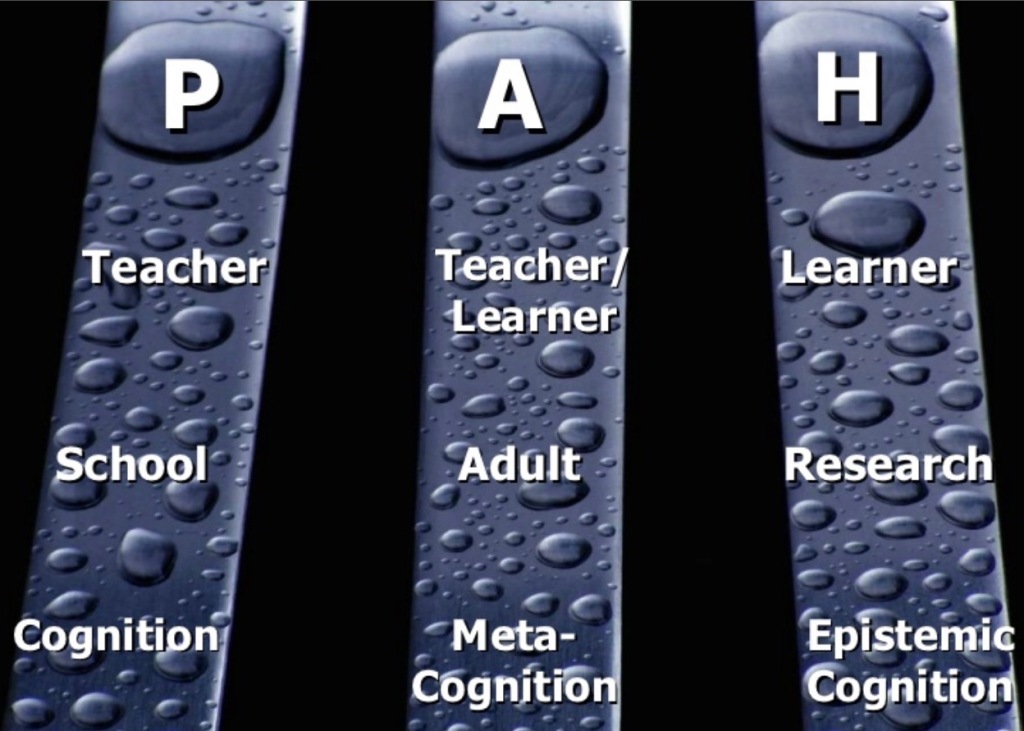Questioning Accreditation
There’s no such thing as cheating just bad educational design. And our current 20th century education systems, outdated, outmoded and not fit for context, are hopelessly inept at being context responsive, let alone identifying the learning needs and interests of individual learners. The current inevitable moral panic about ChatGPT encouraging cheating (it’s a content delivery tool) could only happen in a system that is so unaware of its lineaments that it still thinks that the 11th century platitude that content is king still applies. As we continue to say here context is queen…
Ironically education, the system, which repeatedly tell us it knows best, arrogantly assumes that learning what each individual uniquely takes away is what happens as a matter of course to anyone within an education institution. In this perspective learning ONLY exists within education. Consequently education needs to both demonstrate the benefits of formal education and denigrate the values of every other mode. Loading up on qualifications, rolling the numbers and insisting their is no alternative has become the educational modus operandi.
When Margaret Thatcher decided in 1986 to overhaul the education system to make sure that the creative sixties “never happens again” she created a modern, universal dotheboys punitive system that ineffably drove the learning out of education. As an Oxbridge chemist herself, specialising in adulterating wholesome products in pursuit of excess profits, she had no qualms in refining education into our current system of bullying and grooming that rewards unquestioning drones and ignores with extreme prejudice the rest of us. If you fail educationally it is your fault!
This formal compulsory education has perverted society, all of us, into believing that only formally “qualified” people have anything useful to contribute. (It’s still more of the fast and stupid decontextualisation we suffer from) In an era of declining employment opportunities which believes in the managerialism of keyboard jockeys managing zero-hours unskilled worker drones then a race to the top of the narrow hierarchy of success by arrogant and privileged Oxbridge graduates concerned only with perpetuating elitism ignorance and taxonomy looks like a purposeful education. Those that succeed think it is and want everyone else to believe exactly like them.
I’ve written elsewhere about how I developed my own personal craft of learning, becoming a self-directed learner as Stewart Hase would call it, or a Heutagog, as Vijaya would call me, by time I was 10. Schools did not represent continuity to me but rather very noisy interruptions of my own fascinating (to me) and ever developing interests. I’ve even written a novel 63/68 A Visceral History about my time in 3 Secondary schools which focusses on my informal learning which was driven by my obsession with music, pop, rock and psychedelia
Baby You can Drive My Learning; prompted by a digital learning doctoral researcher at Oxford University, Russell Francis, I tried to analyse how the Beatles learnt to become such original, and unique creative musicians using my PAH continuum frame. Whilst I believed that Heutagogy was about enabling creativity it was enlightening to see how the Beatles, as recording artists, became self-determined learners with a myriad of insights for 21st century learners. No wonder the Conservative Party wants to restrict poorer people to a couple of token places at Oxbridge when All You Need is Heutagogy
How do we accredit self-managed learning is a very old question! But newly asked of me by a home-educator who doesn’t want the learners in her charge to lose out in our blinkered education institutions. I’ve addressed this in multiple ways previously, most notably in WikiQuals and Ambient Learning City (in both Manchester & Timisoara).
In both cases I used the Emergent Learning Model as a design tool which Nigel Ecclesfield and I created as our contribution to the EU Bologna Process concerning how to integrate formal, non-formal and informal learning. It includes our insightful mapping of education to learning where we argue that education starts with formal institutional outputs whereas learning starts with informal practices by people (eg The Beatles). The nux of differentiation occurs in the use of resources.Education says use this text book (and nothing else) and be prepared to regurgitate it precisely like a speaking click. Learning says find your own resources, understand them as you wish & explain their usefulness.
By demonstrable equivalence I mean offering a way of evaluating any alternative mode of learning, especially self-directed learning by motivated learners (or anyone as everyone wants to learn). Frankly this is really easy. I’ve been doing this since I started teaching my own classes in the USA in 1980. I purposefully designed IN alternative assessment options of demonstrable equivalence because I detested the American university end of term exams as a way of assessing learning. Instead of railing pointlessly against something I had no experience of I thought of a solution offering multiple navigation paths (6) from multiple-choice answers to design your own exam. However our educators choose to ignore these simple alternatives because they themselves were raised in our dire educational monoculture and can’t see the forest for the papers.
We need “the optimism of the learners not the pessimism of the educators”
What I argue for in the PAH Continuum is the co-creation of learning between subject specialist teachers (pedagogy) and learners who have nothing to lose but their curiosity. Teachers are vested in their subject knowledge but only paid for repetition, and punished for deviation or hesitation. As in 1984 OFSTED are watching them critically. However it is possible, as I discovered in the USA, to use subject expertise as a starting point for providing learners with their own paths through any subject, unit, course or programme of (learning) within an educational institution.

In the beginning was the word “mine”







